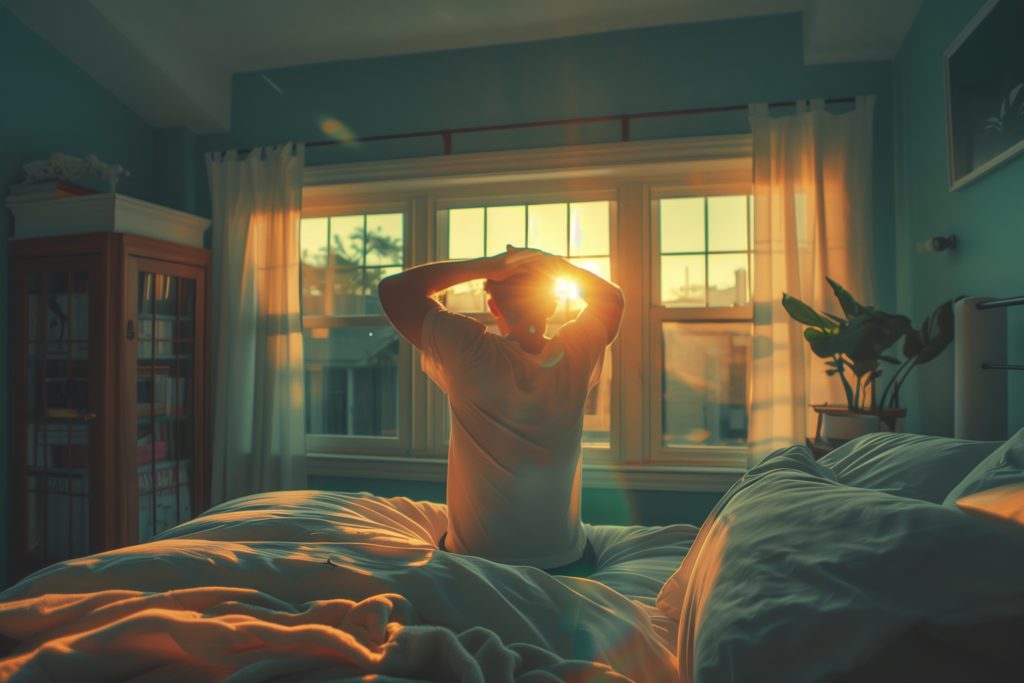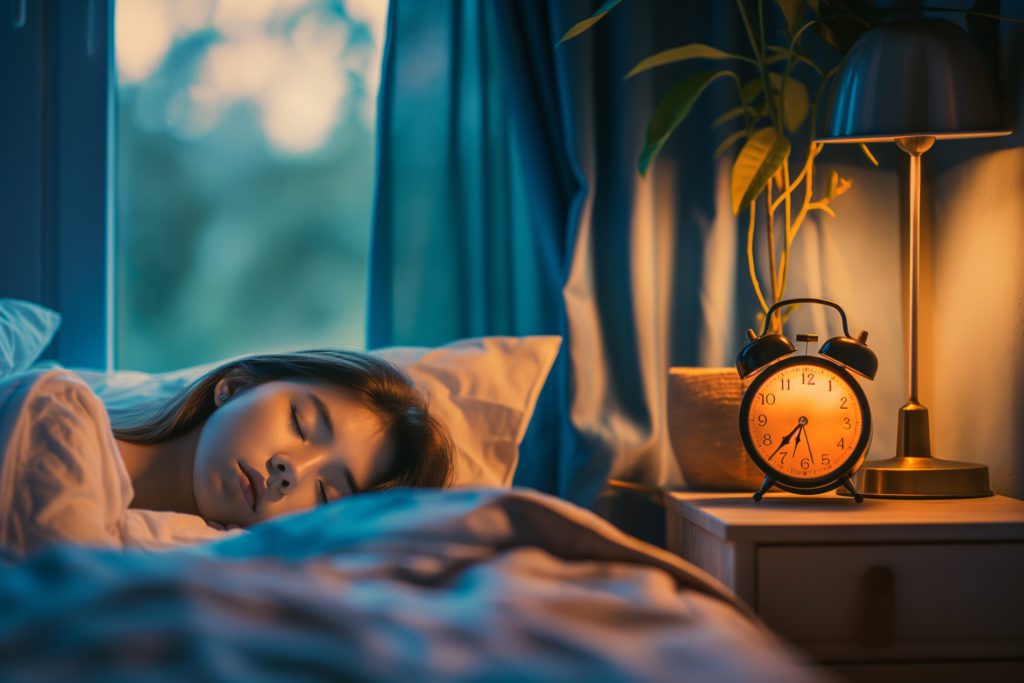
Outdoor Activities and Sleep: The Role of Sunlight and Fresh Air
See the physical and mental benefits of spending time outside and explore how nature can improve your sleep.

There’s a reason why they say that nature can be healing. Sleep deprivation can be dangerous to your health, increasing the risk of diseases such as diabetes and cardiovascular disease, lowering your mental health, and generally making you too tired to make good decisions during the day.
Yet, in addition to improving your mood and providing fresh air to breathe in, nature can heal your sleep, making it easier to fall asleep and increasing the amount of good, quality sleep you get.
Have you ever found that you sleep better after spending the day outdoors? We dove into the science surrounding this phenomenon to better understand why being outdoors during the day improves our sleep at night and how we can make the most of it.
How Does the Outdoors Improve Our Sleep?
While we know that exercise can help improve our sleep, and exercising outdoors is even more powerful for our health and happiness, there are also benefits for our sleep just from spending time outdoors each day.
Resets Your Circadian Rhythm
Some researchers believe that sunlight is able to “reset” your internal clock, or circadian rhythm.
Delayed circadian rhythm has been linked to reduced sunlight exposure and can result in difficulty falling asleep and extreme daytime drowsiness. You can easily retrain your circadian rhythm and get it back on track, though, by spending time outside in the sun.
Curious about why you should care about your circadian rhythm? It’s simple; when your circadian rhythm is regulated, your body will be better prepared for bedtime, which makes falling asleep easier and allows you to get more sleep.
One study even found that circadian rhythm can be improved after only a weekend camping trip, so it doesn’t take long for you to reset your circadian rhythm and take back your nights (for sleeping).
Another study examined how light exposure and exercise affected sleep quality and saw that being exposed to the sun while exercising produced positive sleep hormonal responses, sleep habits, and quality of sleep. This is likely because of the combination of exercise with a circadian rhythm reset.
Reduces The Risk of Medical Diseases
Indirectly, spending time outdoors can improve your sleep by reducing the risk of health conditions that may cause poor sleep. For example, spending time outdoors has been shown to decrease the risk of diabetes, depression, and obesity.
Obesity, in particular, can increase the risk of the sleep disorder obstructive sleep apnea, which is characterized by episodes of stopped breathing during the night. Those with obstructive sleep apnea experience very poor quality sleep due to frequent wakings. By reducing the risk of obesity, the risk of sleep apnea also decreases, protecting your sleep.
Reduces Stress
Stress is a common weight on our happiness and can also affect our sleep.
If stress is on your mind, the stressful thoughts can make it impossible to fall asleep, lessening the amount of sleep you get at night. If you’re stressed, you may also find yourself waking more during the night, leading to poorer quality sleep.
Stress triggers our body’s sympathetic nervous system—our fight-or-flight response. This can cause cortisol levels to increase, further disrupting our sleep by raising our heart rate and increasing our breathing rate. However, getting outdoors can help lower your heart rate and blood pressure, two factors that rise when you’re stressed. Those who spend time outside also feel less stressed, experiencing an improvement in their overall well-being.
You can see this reduction in stress with just a 20-minute walk outside in nature. An 8-week study asked individuals to spend 10 minutes or more each day outdoors where they could interact with nature, settings which varied from public parks to green areas near their work. They were allowed to walk or sit during this time outside but were asked to avoid phone calls, social media, reading, or conversations—it needed to be just them and nature.
The researchers measured the participants’ cortisol levels, the stress hormone, before and after their outings and found the greatest drop in cortisol in those who spent 20-30 minutes outside; any more than that, and the additional stress-reducing benefits were not as significant.
Even more impressive is that time of day and specific setting did not influence the decline in stress; as long as you can spend some time outside, you can reduce your stress and sleep better.
How Much Time Should I Spend Outside To Sleep Better?
Research into time spent outside has shown that the more time you spend outside, the greater your odds of normal sleep. However, there’s an upper limit to this. Once you’ve spent more than 12 hours outside, your sleep quality may start to go down.
As the stress-measuring study found, spending at least 20 minutes outside each day produced the greatest improvement in stress levels, so if stress keeps you awake, this may be the number to aim for.
This time outdoors could be spent doing a number of things, such as exercising, gardening, walking to a store, watching a child’s sports game, etc. The options are endless, and the only thing they share in common is that they take place outside.
Tips for Getting More Sunlight and Fresh Air
Looking to improve your sleep by embracing the great outdoors? Here are some tips on how you can accomplish this:
- Spend some time outside every day
- Open blinds and curtains to get more natural light
- Open your windows to let in fresh air
- Try exercising outdoors
- Mix up the outdoors that you explore
- Explore different parts of your city or town
- Try different outdoor activities until you find what is most restorative for you
Getting outside offers many benefits for your health, wellness, and sleep. Not only does the outdoors offer a chance to decrease your risk of certain health conditions, but it can also reset your circadian rhythm, reduce your risk of medical conditions, and lower your stress, all of which can help improve your sleep.
So, the next time you struggle to sleep, prioritize spending time in the sun the next day and see how much easier you can sleep at night.

Written by
Jessica G
Medical writer freelancer who has written hundreds of articles on varying topics. Masters of Engineering degree in Biomedical Engineering.
Download Pillow
Get help
Press & News
Legal
Connect
X (Twitter)
Company
Copyright © Neybox Digital Ltd.



